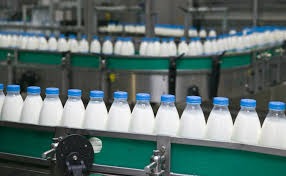As Nigeria marked World Milk Day on June 2, the celebration was overshadowed by a stark reality—while demand for milk is rising, domestic production remains critically low. The country’s dairy sector struggles to meet national consumption needs, forcing heavy reliance on imports. The Minister of Livestock Development, Idi Maiha, acknowledged the issue, stating that despite Nigeria’s vast cattle population, milk remains scarce.
The Growing DemandSupply Gap
-
Nigeria consumes approximately 1.6 million metric tonnes of milk annually, yet domestic production stands at only 700,000 metric tonnes.
-
The country spends over $1.5 billion each year on dairy imports, highlighting the urgent need for local production reforms.
-
Per capita milk consumption in Nigeria is just 8.1 litres per year, far below the global average of 44 litres and the World Health Organization’s recommended 210 litres.
Challenges Facing Nigeria’s Dairy Industry
-
Traditional cattle breeds produce less than two litres of milk per day, compared to exotic dairy breeds that yield up to 20 litres.
-
Over 90 percent of Nigeria’s dairy production is controlled by pastoralists using extensive systems with minimal access to feed supplements, veterinary care, or modern infrastructure.
-
Poor cold chain logistics and a lack of milk collection centers result in significant losses before milk reaches the market.
Government’s Plan To Boost Milk Production
-
Nigeria aims to double its milk production to 1.4 million metric tonnes by 2030, leveraging its existing livestock capacity.
-
The government is promoting innovation in dairy farming, encouraging youth participation in digital solutions such as droneassisted pasture monitoring and mobile veterinary services.
-
Publicprivate partnerships are being explored to improve processing plants and reduce dependency on imported powdered milk.
Looking Ahead
-
Addressing Nigeria’s dairy deficit requires coordinated efforts in breeding, infrastructure development, and policy reforms.
-
With strategic investments and modernized dairy practices, Nigeria has the potential to become selfsufficient in milk production, reducing reliance on costly imports.
Sources: Daily Trust, Science Nigeria.
